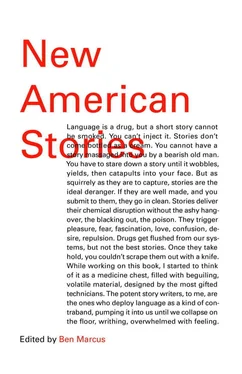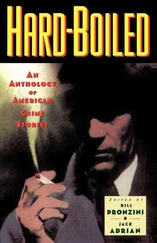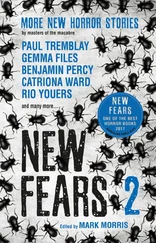Incredible, pants Ruby. Fucking incredible. She holds up her wet, rock-filled trousers with both hands, and looks at Tom through the wavy lens of her swim mask. His blood storms through its lightless tunnels.
He has to trot to make the butcher’s and get back home by noon. It is the first time Tom can remember permitting himself to run, and his legs feel like glass. At the end of the lane, a hundred yards from home, he stops and pants with the basket of meat in his arms and spits a pat of blood into the dandelions. Sweat soaks his shirt. Dragonflies dart and hover. Swallows inscribe letters across the sky. The street seems to ripple and fold and straighten itself out again.
Just a hundred yards more. He forces his heart to settle. Everything, Tom thinks, follows a path worn by those who have gone before: egrets, clouds, tadpoles. Everything everything everything.
—
The following Tuesday Ruby meets him at the end of the lane. And the Tuesday after that. They hop the fence, cross the field; she leads him places he’s never dreamed existed. Places where the structures of the saltworks become white mirages on the horizon, places where sunlight washes through groves of maples and makes the ground quiver with leaf-shadow. They peer into a foundry where men in masks pour molten iron from one vat into another; they climb a tailings pile where a lone sapling grows like a single hand thrust up from the underworld. Tom knows he’s risking everything — his freedom, Mother’s trust, even his life — but how can he stop? How can he say no? To say no to Ruby Hornaday would be to say no to the world.
Some Tuesdays Ruby brings along her red book with its images of corals and jellies and underwater volcanoes. She tells him that when she grows up she’ll go to parties where hostesses row guests offshore and everyone puts on special helmets to go for strolls along the sea bottom. She tells him she’ll be a diver who sinks herself a half mile into the sea in a steel ball with one window. In the basement of the ocean, she says, she’ll find a separate universe, a place made of lights: schools of fish glowing green, living galaxies wheeling through the black.
In the ocean, says Ruby, half the rocks are alive. Half the plants are animals.
They hold hands; they chew Indian gum. She stuffs his mind full of kelp forests and seascapes and dolphins. When I grow up, says Ruby. When I grow up…
Four more times Ruby walks around beneath the surface of a Rouge River marsh while Tom stands on the bank working the pump. Four more times he watches her rise back out like a fever. Amphibian. She laughs. It means two lives.
Then Tom runs to the butcher’s and runs home, and his heart races, and spots spread like inkblots in front of his eyes. Sometimes in the afternoons, when he stands up from his chores, his vision slides away in violet streaks. He sees the glowing white of the salt tunnels, the red of Ruby’s book, the orange of her hair — he imagines her all grown up, standing on the bow of a ship, and feels a core of lemon yellow light flaring brighter and brighter within him. It spills from the slats between his ribs, from between his teeth, from the pupils of his eyes. He thinks: It is so much! So much!
—
So now you’re fifteen. And the doctor says sixteen?
Eighteen if I’m lucky.
Ruby turns her book over in her hands. What’s it like? To know you won’t get all the years you should?
I don’t feel so shortchanged when I’m with you, he wants to say, but his voice breaks at short- and the sentence fractures.
They kiss only that one time. It is clumsy. He shuts his eyes and leans in, but something shifts and Ruby is not where he expects her to be. Their teeth clash. When he opens his eyes, she is looking off to her left, smiling slightly, smelling of mud, and the thousand tiny blond hairs on her upper lip catch the light.
—
The second-to-last time Tom and Ruby are together, on the last Tuesday of October 1929, everything is strange. The hose leaks, Ruby is upset, a curtain has fallen somehow between them.
Go back, Ruby says. It’s probably noon already. You’ll be late. But she sounds as if she’s speaking to him through a tunnel. Freckles flow and bloom across her face. The light goes out of the marsh.
On the long path through the pitch pines it begins to rain. Tom makes it to the butcher’s and back home with the basket and the ground veal, but when he opens the door to Mother’s parlor the curtains blow inward. The chairs leave their places and come scraping toward him. The daylight thins to a pair of beams, waving back and forth, and Mr. Weems passes in front of his eyes, but Tom hears no footsteps, no voices: only an internal rushing and the wet metronome of his exhalations. Suddenly he’s a diver staring through a thick, foggy window into a world of immense pressure. He’s walking around on the bottom of the sea. Mother’s lips say, Haven’t I given enough? Lord God, haven’t I tried? Then she’s gone.
In something deeper than a dream Tom walks the salt roads a thousand feet beneath the house. At first it’s all darkness, but after what might be a minute or a day or a year, he sees little flashes of green light out there in distant galleries, hundreds of feet away. Each flash initiates a chain reaction of further flashes beyond it, so that when he turns in a slow circle he can perceive great flowing signals of light in all directions, tunnels of green arcing out into the blackness — each flash glowing for only a moment before fading, but in that moment repeating everything that came before, everything that will come next.
—
He wakes to a deflated world. The newspapers are full of suicides; the price of gas has tripled. The miners whisper that the saltworks are in trouble.
Quart milk bottles sell for a dollar apiece. There’s no butter, hardly any meat. Fruit becomes a memory. Most nights Mother serves only cabbage and soda bread. And salt.
No more trips to the butcher; the butcher closes anyway. By November, Mother’s boarders are vanishing. Mr. Beeson goes first, then Mr. Fackler. Tom waits for Ruby to come to the door but she doesn’t show. Images of her climb the undersides of his eyelids, and he rubs them away. Each morning he clambers out of his closet and carries his traitorous heart down to the kitchen like an egg.
—
The world is swallowing people like candy, boy, says Mr. Weems . No one is leaving addresses.
Mr. Hanson goes next, then Mr. Heathcock. By April the saltworks is operating only two days a week, and Mr. Weems, Mother, and Tom are alone at supper.
Sixteen. Eighteen if he’s lucky. Tom moves his few things into one of the empty boarders’ rooms on the first floor, and Mother doesn’t say a word. He thinks of Ruby Hornaday: her pale blue eyes, her loose flames of hair. Is she out there in the city, somewhere, right now? Or is she three thousand miles away? Then he sets his questions aside.
—
Mother catches a fever in 1932. It eats her from the inside. She still puts on her high-waisted dresses, ties on her apron. She still cooks every meal and presses Mr. Weems’s suit every Sunday. But within a month she has become somebody else, an empty demon in Mother’s clothes — perfectly upright at the table, eyes smoldering, nothing on her plate.
She has a way of putting her hand on Tom’s forehead while he works. Tom will be hauling coal or mending a pipe or sweeping the parlor, the sun cold and white behind the curtains, and Mother will appear from nowhere and put her icy palm over his eyebrows, and he’ll close his eyes and feel his heart tear just a little more.
Читать дальше










![Женя Джентбаев - neo futura [stories]](/books/692472/zhenya-dzhentbaev-neo-futura-stories-thumb.webp)

